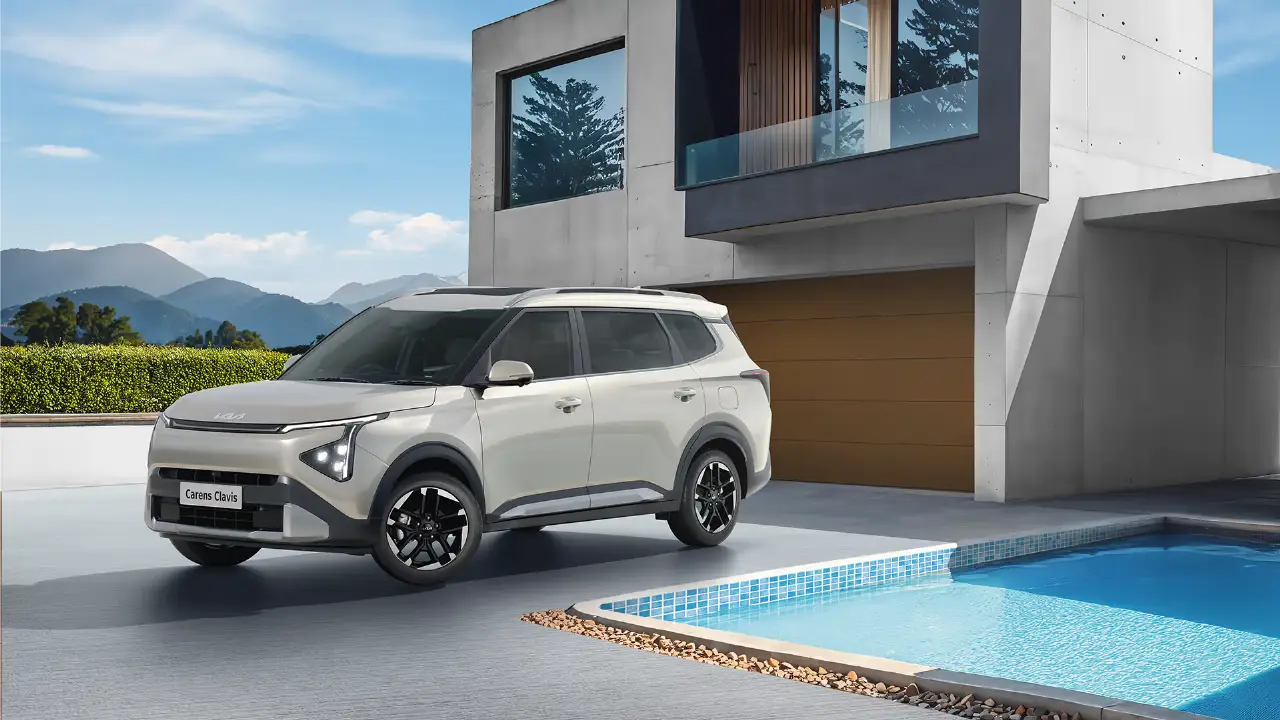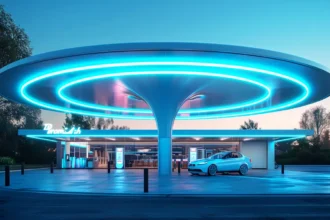Kia India Plans Big Move Into Family Electric Vehicles
Imagine a spacious family car that runs completely on electricity and costs less than many premium hatchbacks. This is exactly what Kia India is preparing to bring to Indian families.
The company has announced plans to launch the Carens Clavis Electric, which will be their first locally produced electric vehicle in India, according to information from E-Vehicleinfo. This new electric vehicle represents a major shift in how Indian families might think about transportation in the coming years.
What Makes The Carens Clavis Electric Special?
The Carens Clavis Electric is not just another car – it’s a spacious 6-7 seater electric vehicle designed specifically for Indian family needs. This type of vehicle, called an MPV (Multi-Purpose Vehicle), is particularly valuable for larger families or those who frequently travel with extended family members.
The price is expected to be under ₹22 lakh, making it significantly more affordable than current electric SUVs that often cost ₹30 lakh or more.
Kia is targeting everyday families who want to switch to cleaner transportation but couldn’t previously afford electric vehicles. By producing this car locally in India rather than importing it, Kia can keep costs lower while creating jobs in the Indian manufacturing sector. The company hopes to sell between 1,000 to 1,500 units monthly when the vehicle launches around the third quarter of 2025.
Understanding The Technology And Features
The new electric MPV will likely use Lithium Iron Phosphate (LFP) battery technology. This is important for Indian buyers because LFP batteries typically cost less than other electric vehicle batteries while offering good performance in hot climates like India’s. This technology choice connects to Hyundai and Kia’s partnership with Exide Energy for local battery production in India, which aims to make their electric vehicles more affordable.
- Premium Comfort Features: The vehicle will include ventilated front seats (which blow cool air through the seat cushions – very useful in India’s hot climate) and a panoramic sunroof (a large glass roof that makes the interior feel more spacious and bright).
- Advanced Safety: Level 2 ADAS (Advanced Driver Assistance Systems) will help drivers avoid accidents through features like automatic emergency braking and lane-keeping assistance. This technology is relatively new to mass-market vehicles in India.
- Comprehensive Protection: Six airbags, electronic stability control, and parking sensors will work together to protect passengers in various driving situations, exceeding the typical safety features in this price range.
Impact On India’s Electric Vehicle Market
This launch comes at a critical time for India’s electric vehicle market. According to S&P Global, the Indian EV market is expected to grow rapidly due to more affordable vehicles and government support through programs like FAME (Faster Adoption and Manufacturing of Electric Vehicles) and PLI (Production Linked Incentive) schemes that provide financial benefits to manufacturers and buyers.
The reduction of import duties on battery production materials is helping companies like Kia establish local manufacturing operations. This creates a positive cycle – more affordable batteries lead to cheaper electric vehicles, which increases consumer adoption, which then encourages more investment in the sector.
| Current Kia EV Performance | Future Goals |
|---|---|
| Kia India sold 31 electric vehicles in April 2025, showing 41% growth compared to the previous year. These sales came from their premium models – the EV6 and the larger luxury SUV EV9. | With the Carens Clavis Electric, Kia aims for electric vehicles to make up approximately 7% of their total sales in the medium term, a significant increase from current levels that represent less than 1% of their overall sales. |
Looking Ahead: What This Means For Indian Consumers
The arrival of the Carens Clavis Electric signals a new phase in India’s electric vehicle journey. Until now, electric cars have been either small hatchbacks with limited range or expensive luxury vehicles. This new offering bridges that gap, potentially making electric mobility practical for middle-class Indian families for the first time.
As Kia and other manufacturers increase local production of electric vehicles, we can expect prices to gradually decrease while features and capabilities continue to improve. The question now is whether Indian consumers will embrace these new electric family vehicles, and if the country’s charging infrastructure will develop quickly enough to support this anticipated growth in electric mobility.











